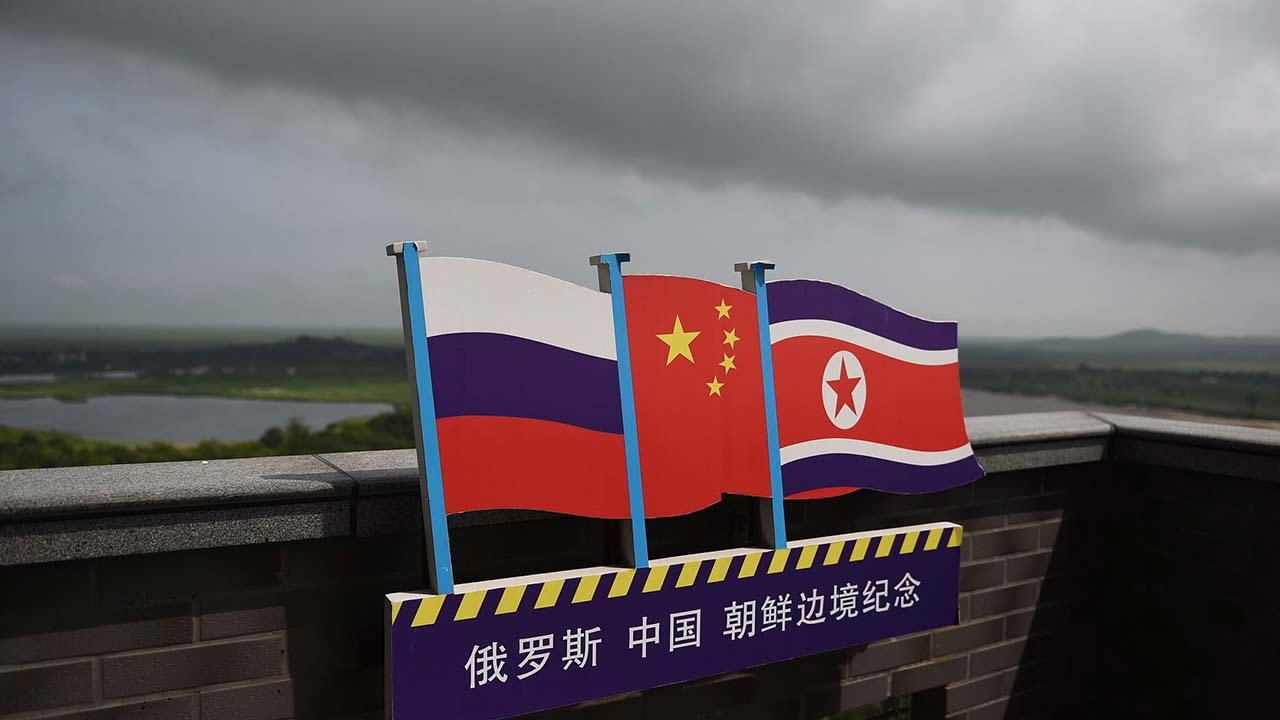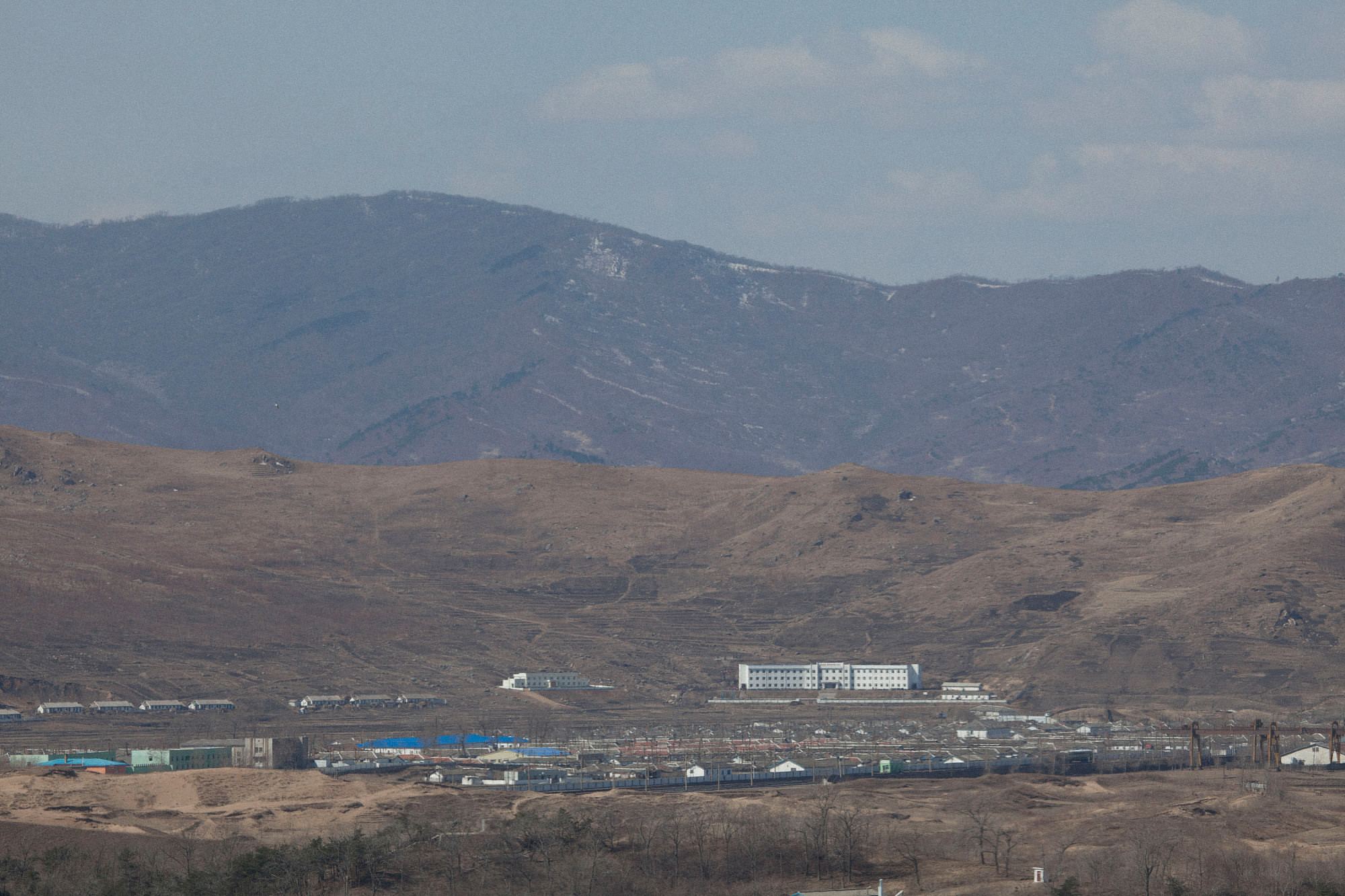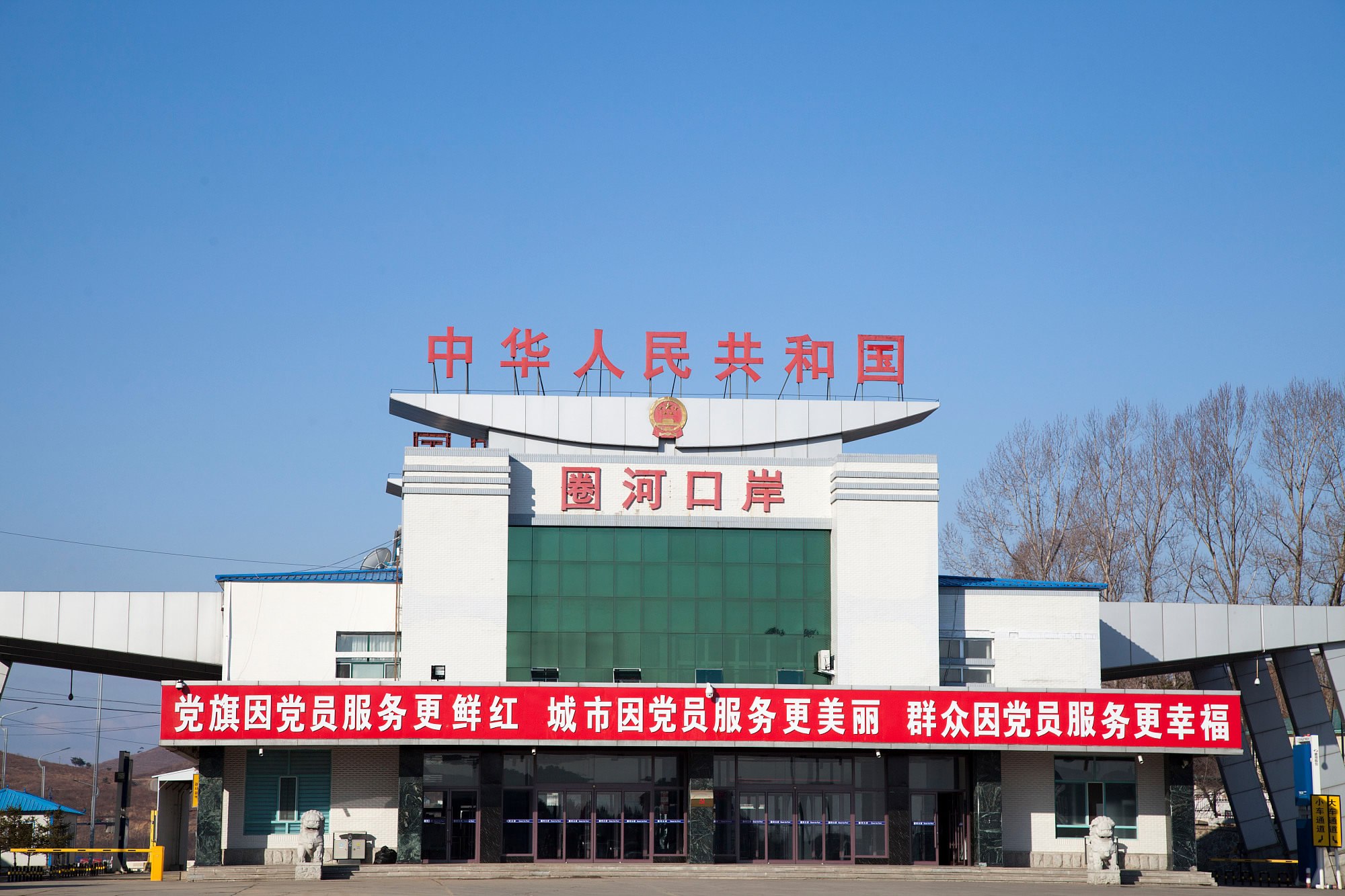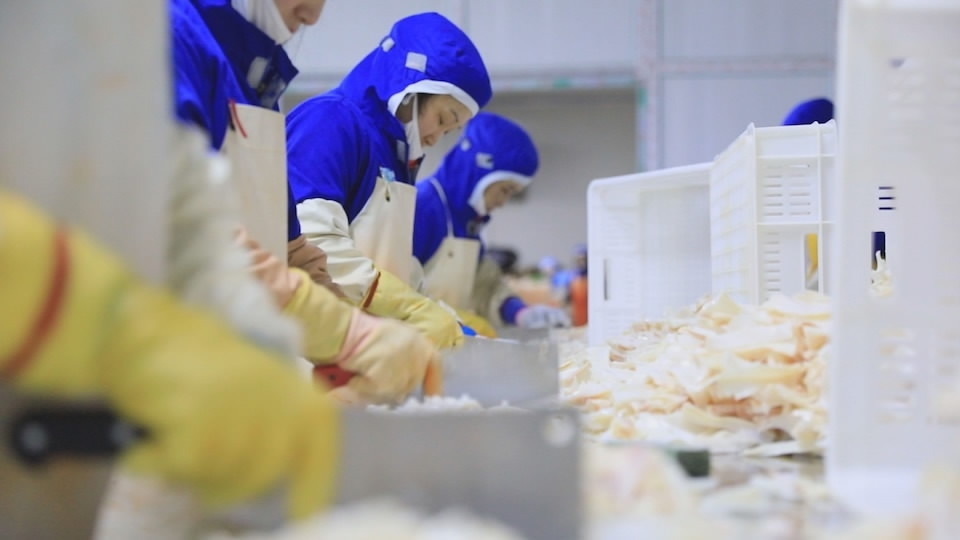
Business
12:19, 29-Apr-2017
Korean Peninsula tensions darken future of China-DPRK border trade

By CGTN's Ge Yunfei and Dai Piaoyi
Hunchun, a border city sitting by the Tumen river in northeast China across from the DPRK, prospers from trade with the neighboring country. Of its 300,000 residents, over 10,000 are workers sent by the DPRK government.

Looking out at the DPRK from Hunchun. /CGTN Photo
Looking out at the DPRK from Hunchun. /CGTN Photo
On the streets of Hunchun, banners, posters and advertisements with Korean characters are seen everywhere. The DPRK, often associated with mysterious and negative implications in the West, has become a label for the local vendors to promote their products.
You can hardly find a seafood store without the big and eye-catching Chinese words “朝鲜” (DPRK). Seafood, one of the major imports from the DPRK, is promoted using its origin.
The Quanhe Port, the entrance and exit checkpoint on the China-DPRK border, is only 30 minutes away from the downtown seafood street. It sits right next to the DPRK’s Rason Special Economic Zone.

Quanhe Port. /CGTN Photo
Quanhe Port. /CGTN Photo
Chinese traders and trucks gather at Quanhe Port to cross the border every morning, and come back with full loads of goods and products from the DPRK in the afternoon.
This bustling port is like the Luohu Port in Shenzhen, which connects the former fishing town to Hong Kong. A businessman said Hong Kong to Shenzhen is like Hunchun to Rason, but the difference is that DPRK’s Rason might not replicate Shenzhen’s economic miracle of the past three decades.
However, there is one thing that Hong Kong and Rason share in common – smugglers. Local resident Mr. Liang said that in order to evade tax, local traders often hire people to divide the merchandise into small shares to bring back.
As a matter of fact, the busy cross-border trade at Quanhe Port is only the tip of the iceberg. The tensions on the Korean Peninsula have already poisoned business for major traders.
Peng Dian has a seafood processing factory in the DPRK. His main business is exporting the semi-finished product back to China. He agreed to talk to CGTN with an alias.

Peng spoke to CGTN anonymously. /CGTN Photo
Peng spoke to CGTN anonymously. /CGTN Photo
“I definitely can feel the current tensions. The DPRK is now suffering from a shortage of fuel, which affects its manufacturing and society a lot. The price of diesel has surged from the 500 US dollars a ton to 1,350 US dollars, but you still can’t find any diesel at this price,” Peng said.
Peng complained that his factory in the DPRK was supposed to complete the processing of seafood in early June, but it has had to suspend operations a month early due to fuel shortages. “Our DPRK partners asked us to solve the shortage problem, but what can we do?”
“The sanctions are getting tougher. Now all exports to the DPRK must be declared to customs, but in the past we sometimes got through the customs with trollies filled with goods. We are now very pessimistic about the future. Many of us, at least 10 percent, are considering quitting our trade with the DRPK,” Peng added.
However, for other bigger dealers, quitting is not an option. Su Yansheng’s company is one of the largest seafood importers from the DPRK with annual sales of 300 million yuan (43.5 million US dollars).
“We’re quite worried about the situation, but there’s no turning back. We can only carrying on since we’ve already come this far. We hope the future will be better,” Su said.

Su's seafood factory in Hunchun. /CGTN Photo
Su's seafood factory in Hunchun. /CGTN Photo
Since the former US president Barack Obama launched full-scale sanctions on the DPRK, Chinese banks have terminated their operations in the neighboring country. Hence transferring money to DPRK is no long a viable option for the border traders.
But the smart traders have found a seemingly clumsy way to deliver money – humans. Given China’s regulation that a traveler can take up 20,000 yuan (2,900 US dollars) over the border each time, sometimes it takes dozens of people to finish the delivery.
Last year, the Chinese government implemented tougher sanctions on the DPRK following the latest UN resolution. Peng said the DPRK took offense.
“Many of them think China has betrayed the DPRK. So now they prefer to do business with Russia,” Peng stated.
China now accounts for 85 percent of the DPRK’s total foreign trade. As a contributor to this, Peng said his biggest hope is peace and stability on the peninsula.
1210km

SITEMAP
Copyright © 2018 CGTN. Beijing ICP prepared NO.16065310-3
Copyright © 2018 CGTN. Beijing ICP prepared NO.16065310-3